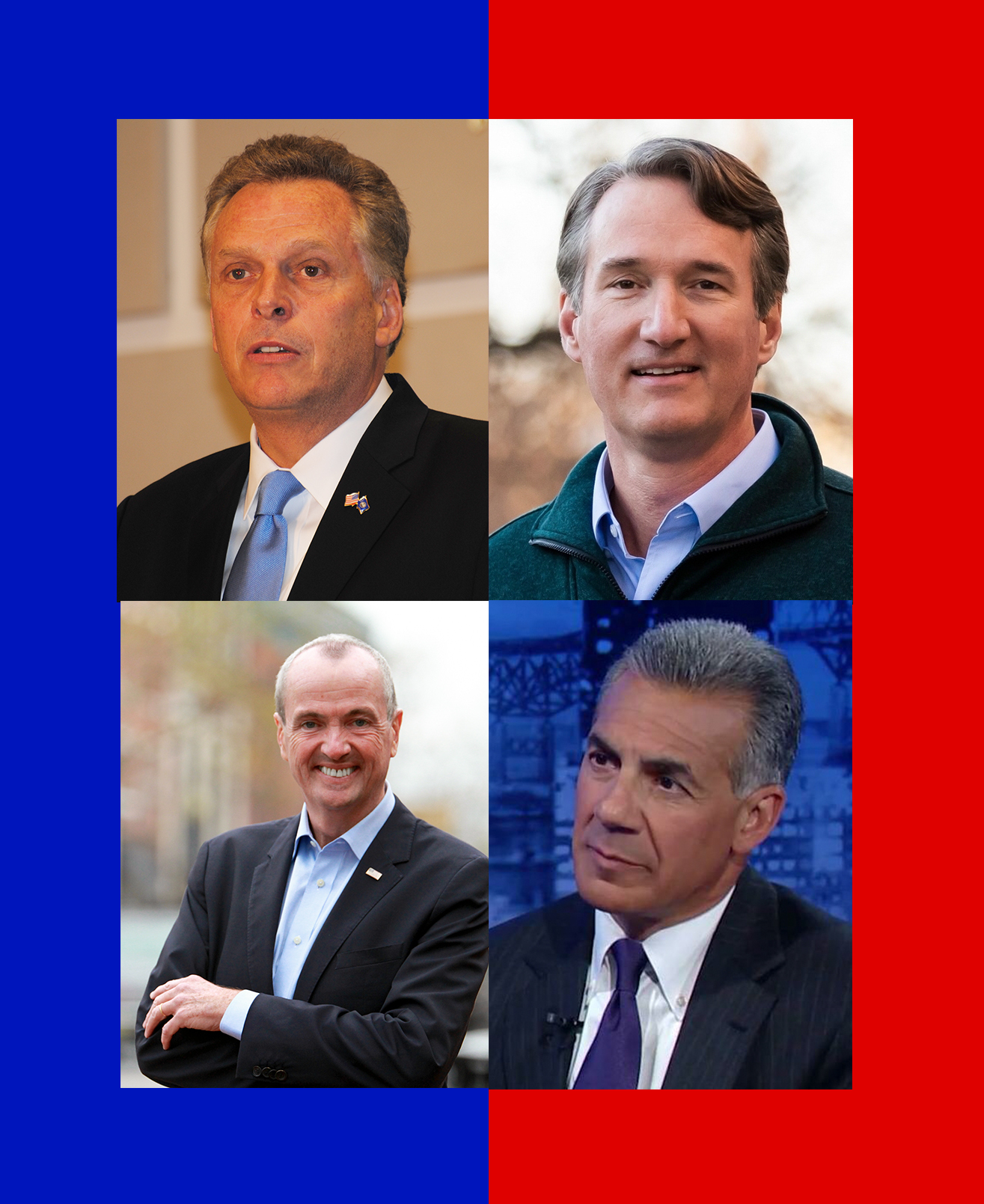
Wikimedia Commons
After Virginia’s and New Jersey’s Nov. 2 gubernatorial elections, Yale students from the two states reacted to the results. Students had worked on campaigns for politicians, and some expressed surprise at their swing to the right.
One year after the election of U.S. President Joe Biden and Democratic victories in the House and the Senate, the nation watched closely at Virginia and New Jersey’s gubernatorial elections — the first major state-wide elections since Biden took office. Although the two states only account for just over five percent of the national population, they marked a litmus test for the president’s popularity after the national election and ahead of the coming midterm elections.
Yale students from both the states tuned in Tuesday to watch Republican Glenn Youngkin defeat Democrat Terry McAuliffe in the election for Virginia’s governor and the close victory by Democrat Phil Murphy over Republican Jack Ciattarelli in New Jersey.
“Virginia and New Jersey are only the first two states that have such a close election race between the Democrats and Republicans,” said Aziz Ahmed Diaz ’25, who is an international student with family in the United States. “Similar trends are likely to take place between democratic and republican majority states.”
Both states have historically swung away from the party that holds the White House. In 2016, when President Donald Trump was elected, the Democrats won the gubernatorial elections in both Virginia and New Jersey the following year. A year after the election of President Barack Obama in 2008, Virginia and New Jersey both elected Republican governors. And during Bill Clinton’s presidency, Virginia and New Jersey both had Republican governors.
The Yale College Democrats, a student group that works to elect and support democratic candidates, has spent this fall semester focused on Virginia statewide and local elections. The entire Yale Dems chapter participated in phone banks for McAuliffe and other down ballot races. The Dems chapter also assigned specific students to serve as Elections Fellows, who worked specifically on certain Virginia campaigns.
“Over the last few months, we worked hard to help elect Democrats in Virginia,” elections fellow Ryan Smith ’24 wrote in an email. “We phone banked, wrote letters, conducted research, and just generally did whatever we could to support candidates in competitive races. The results obviously weren’t what we wanted, and it was really sad to see some of the candidates we supported fall short — Alex Askew, the House of Delegates candidate who I interned for, lost by only 200 or so votes — but that just means we need to work even harder in 2022 to help Democrats keep Congress and take back state legislatures.”
In addition to Askew, elections fellows worked for Virginia State Delegate candidates Debra Gardner and Schuyler VanValkenburg.
Though some students were actively engaged in the election, others who hailed from the two states were not involved.
“I did not vote in the New Jersey election nor support either candidate’s campaigns,” said Nasser Eid ’25, a resident of Kinnelon, New Jersey. “Despite the Democrats’ frail control over New Jersey, I feel both candidates have not done much at all for their communities … I look towards leaders who have a vision greater than themselves to solve social problems in New Jersey, and I just don’t see that in Murphy or Ciattarelli.”
Murphy carried the New Jersey election by just 2.6 percentage points — a surprise, as Biden won the state of New Jersey by a comfortable margin of 16 points.
Zaakir Tameez YLS ’24, a resident of Virginia who worked personally with McAuliffe while serving on a state task force during his undergraduate studies at the University of Virginia, said that he believes the Virginia democratic loss stems from a lack of focus on issues affecting rural Virginians. He noted that McAuliffe’s campaign always appeared to be “on the defensive,” when it could have been campaigning harder on everyday issues.
“I worked personally with Terry McAuliffe while serving on a state task force in college, and I was always impressed by his energy and dynamism,” Tameez said. “But I don’t think it translated well into his campaign. … We were on the defensive for no good reason, rather than giving people something to fight for. Democrats need to show the government works, but we can’t do that without proposing real, substantial, clear-cut policies. For better or worse, Youngkin did that.”
The close elections also expose a political polarization present amongst the citizens of the United States. Both candidates won their elections by only two to three percent of the vote, showing a deep partisan divide in the states’ populations.
Youngkin will be inaugurated as governor on Jan. 15, 2022, and Murphy will finish his term in 2025.
Correction, Nov 10: A previous version of this article misrepresented Aziz Ahmed Diaz’s quote by adding an additional clause that he did not explicitly say. The article has been updated to remove the extrapolation and include solely his words. It has also been updated to reflect that Ahmed Diaz is an international student, with extended family on the East Coast but not, as previously stated, living in New Jersey or Virginia. The News regrets these errors.







